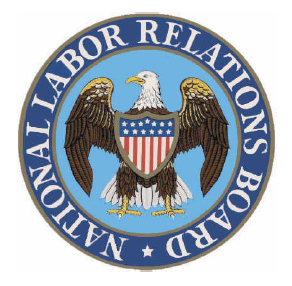 |
| English: Color logo of the National Labor Relations Board, an independent agency of the United States federal government. (Photo credit: Wikipedia) |
The
Board found that the employer, a home building company, violated
Section 8(a)(1) of the Act by maintaining a mandatory arbitration
agreement that did not allow its employees to file joint, class, or
collective employment-related claims in any forum, arbitral or judicial.
The employer required its employees to sign the agreement as a
condition of employment, and, based on the agreement, had rejected
employees' requests for class arbitration of claims under the Fair Labor
Standards Act.
The Board found that by requiring only individual arbitration of employment-related claims and excluding access to any forum for collective claims, the employer interfered with employees' Section 7 right to engage in “concerted activities for the purpose of collective bargaining or other mutual aid or protection.” The collective pursuit of workplace grievances through litigation or arbitration is conduct protected by Section 7 and the right under the NLRA to freedom of association. Applying its test for unlawful workplace policies in Lutheran Heritage Village-Livonia, 343 NLRB 646 (2004), the Board found the mandatory arbitration agreement unlawful because it contains an explicit restriction on protected activity, and because employees could reasonably construe it to prohibit filing charges with the Board.
The Board found that its violation finding did not present a conflict between the NLRA and the Federal Arbitration Act's policy favoring the enforcement of arbitration agreements because the FAA was not intended to disturb substantive rights. The Board further found that even if there were a conflict, its finding accommodates the policies of the two statutes and is consonant with the Supreme Court's FAA jurisprudence.
The Board found that by requiring only individual arbitration of employment-related claims and excluding access to any forum for collective claims, the employer interfered with employees' Section 7 right to engage in “concerted activities for the purpose of collective bargaining or other mutual aid or protection.” The collective pursuit of workplace grievances through litigation or arbitration is conduct protected by Section 7 and the right under the NLRA to freedom of association. Applying its test for unlawful workplace policies in Lutheran Heritage Village-Livonia, 343 NLRB 646 (2004), the Board found the mandatory arbitration agreement unlawful because it contains an explicit restriction on protected activity, and because employees could reasonably construe it to prohibit filing charges with the Board.
The Board found that its violation finding did not present a conflict between the NLRA and the Federal Arbitration Act's policy favoring the enforcement of arbitration agreements because the FAA was not intended to disturb substantive rights. The Board further found that even if there were a conflict, its finding accommodates the policies of the two statutes and is consonant with the Supreme Court's FAA jurisprudence.







No comments:
Post a Comment